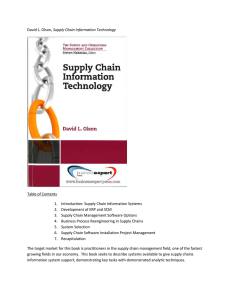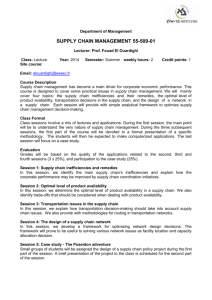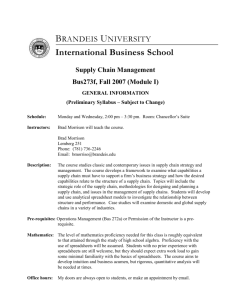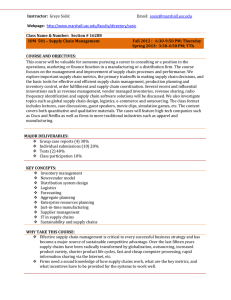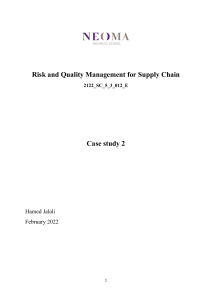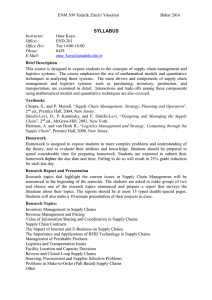Logistics and Supply Chain
advertisement
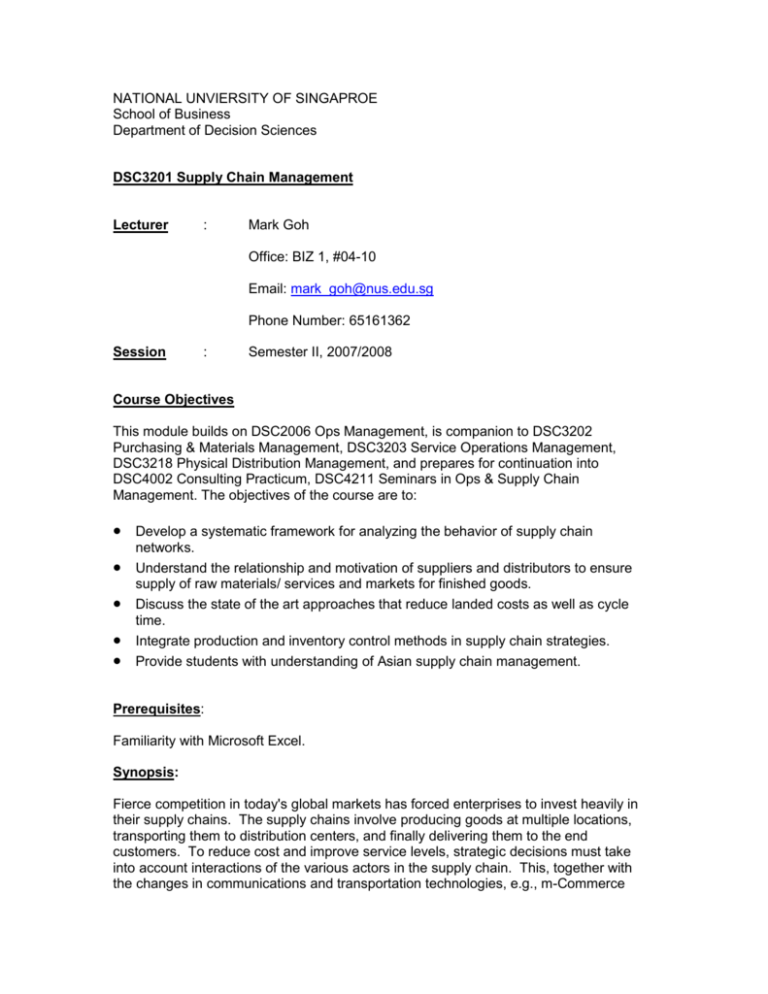
NATIONAL UNVIERSITY OF SINGAPROE School of Business Department of Decision Sciences DSC3201 Supply Chain Management Lecturer : Mark Goh Office: BIZ 1, #04-10 Email: mark_goh@nus.edu.sg Phone Number: 65161362 Session : Semester II, 2007/2008 Course Objectives This module builds on DSC2006 Ops Management, is companion to DSC3202 Purchasing & Materials Management, DSC3203 Service Operations Management, DSC3218 Physical Distribution Management, and prepares for continuation into DSC4002 Consulting Practicum, DSC4211 Seminars in Ops & Supply Chain Management. The objectives of the course are to: Develop a systematic framework for analyzing the behavior of supply chain networks. Understand the relationship and motivation of suppliers and distributors to ensure supply of raw materials/ services and markets for finished goods. Discuss the state of the art approaches that reduce landed costs as well as cycle time. Integrate production and inventory control methods in supply chain strategies. Provide students with understanding of Asian supply chain management. Prerequisites: Familiarity with Microsoft Excel. Synopsis: Fierce competition in today's global markets has forced enterprises to invest heavily in their supply chains. The supply chains involve producing goods at multiple locations, transporting them to distribution centers, and finally delivering them to the end customers. To reduce cost and improve service levels, strategic decisions must take into account interactions of the various actors in the supply chain. This, together with the changes in communications and transportation technologies, e.g., m-Commerce communication and overnight delivery, has motivated continuous evolution in supply chain management. In recognition of these developments, the course offers an introductory study on the design and management of supply chains. We will in this course review state of the art planning models and practical tools for inventory control, distribution management and multi-plant coordination. The emphasis is on exploring robust tools and understanding process based supply chain management that have been proven effective in many industries. In particular we address issues such as: Optimal design of the logistics network Adequate safety stock levels and the risk pooling concept Cost effective distribution strategies. Strategic alliances and outsourcing. Effect of e-business on supply chain strategy Service supply chains Main Text: Supply Chain Management: Strategy, Planning, and Operation, S. Chopra and P. Meindl, 3ed, Prentice Hall. Reference Text: Designing and Managing the Supply Chain: Concepts Strategies and Case Studies, Simchi-Levi, Kaminsky and Simchi-Levi, 2003, 2e, McGraw-Hill. Assessments: Group Case Write-Up 30 % Individual Term Paper 30 % Final Exam (closed book) 40%

